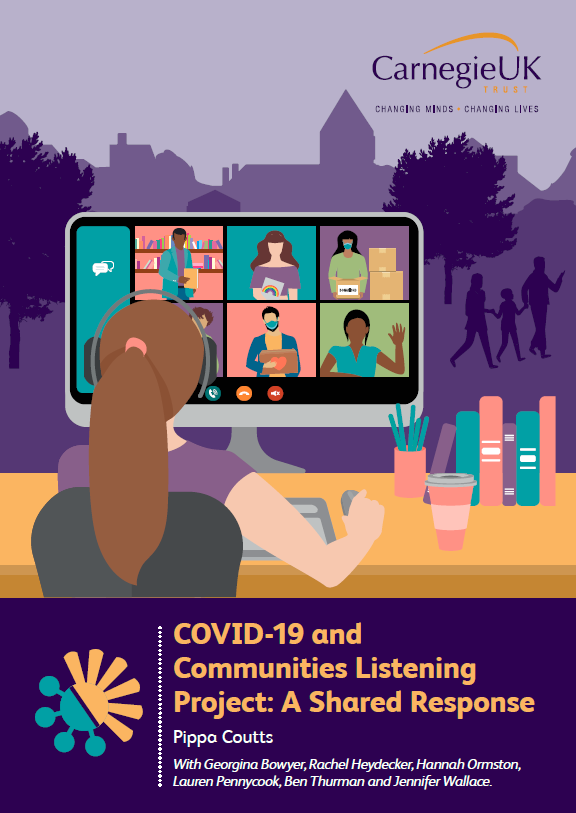
CarnegieUK have published a report that summarises some of the issues that are concerning people as a result of the Covid-19 pandemic. The report has an aspiration that I fully support, especially as it asks, to what extent are people are re-engaging and contributing to their local communities as a result of the pandemic?
The report indicates that we need to think about how we can renew local civic engagement, and support people as they act in social and community organisations, mutual aid groups or just individually, that can help us to:
"Reflect collectively on what we as individuals, communities and nations need to do to change our established partnerships and systems to make them work better for more people."However, it has two issues with the approach taken, that stand out on my first read.
First, it uses the dreaded ‘hyperlocal’ word. I’m getting increasingly concerned about the way this word is used by academics and policy researchers. I’ve never met anyone who lives in a hyperlocal world, or who uses hyperlocal services. We live in neighbourhoods, communities, families that form and shape our social world. Do we need to persuade these organisations to start using plain and accessible English?
Am I right in thinking that the phrase 'hyperlocal' is exclusionary? Am I right in thinking that it is used to hide the fact that social policy thinking is not based on evidence drawn from people's lived experiences and practical relationships that they face in their day-to-day lives? The word 'hyperlocal' might look good in an academic journal or a seminar attended by policy wonks, but it has no relationship with my life or the things that my neighbours have to engage with each day.
Second, the report has no mention of community media. Is this further conformation of a bias against the idea of DIY, civic, independent media? Does the absence of any mention of community media in this report suggest that there is a bias against locally determined, democratically accountable media in the policy development and engagement process?
The values of civic engagement and local self-determination that are identified in the report are relevant, timely and valuable, but I have to ask, why are these principles not being applied to our media policy thinking and practice? There are thousands of instances of effective and engaging community media here in the UK.
I've spoken with many people for the Decentered Media Podcast who are living proof that our media can be part of the solution for civic engagement and social transformation. Why is this falling on deaf ears? Is community media not fashionable enough?
The reason this matters is that these reports inform the planning for project funding that CarnegieUK and other organisations use. It’s essential that we engage with these organisations to start to think about media reform in participative, inclusive and democratic ways. If they can do this with ideas about reform of public services, then they can do it as it applies to how communities communicate and use media for themselves.
Posted from my blog with SteemPress : https://decentered.co.uk/carnegieuk-covid-19-and-communities-listening-project-report/